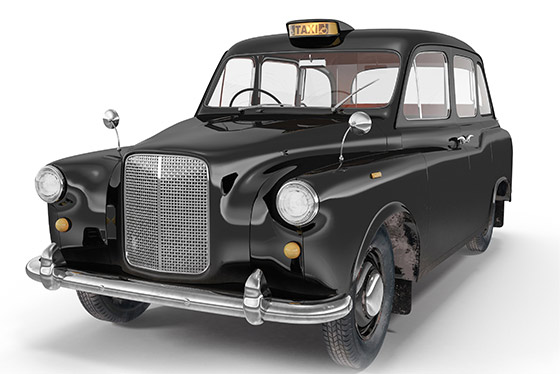How to prevent the risk of having excess motor insurance payment
Introduction:
Rowan loves to drive around in his new car. He drives a lot every day but can also be very clumsy. As he was driving his new car, he got distracted by a huge track and accidentally hit a tree. He came out of the hospital healthy, and it used up a lot of his money from his savings which disappointed him. When he thought that he didn’t have to pay for his car repairs because of his motor excess insurance, he needed to pay $1000 because of the motor excess insurance policy. He was in shock, confused, and further disappointed!
Like Rowan, we may never know when or how to get into a fatal accident, but we learned that having an excess motor insurance policy can sometimes be very risky. Let us look into the article for more details about how to prevent the risk of having excess motor insurance payment.
What is excess insurance?
Excess insurance is the money contributed by you and not the company at the beginning of the claim and is also called deductibles. It is the amount paid by you, and the company will pay the rest. Suppose the cost of the damage is $3500, the company will pay $2000 where you might have to pay the rest $1500.
Types of excess motor insurance policies:
There are two types of motor excess insurance policies:
- Compulsory Deductible/ Compulsory excess
- Voluntary Deductible/ Voluntary Excess
Compulsory Deductible:
The compulsory deductible is known as the amount of value that must be paid compulsory. The value depends on the engine such that if your car engine has a high cubic capacity, your Compulsory Deductible will also be high.
How to reduce CD:
While it may seem scary at first that we must always pay an excess in an accident, it can be managed. As a new driver, you can reduce the cost of CD by buying a car with an engine possessing low cubic capacity. Low cubic capacity engines may slightly differ from high capacity engines. Still, if you believe you are a new driver with a high chance of getting into an accident, it is advisable to buy cars with low cubic capacity.
Voluntary Deductible:
Voluntary deductible is the value you choose to pay, apart from the four-wheeler insurance, during unfortunate times like an accident. Not only for four-wheelers, but VD is also an option for bikes with motors. When buying your motor insurance, you will be given an option to choose an amount/percentage of the cost that you would pay in the future.
How to reduce VD:
Unlike CD, you get to choose the amount you want to pay in VD. While many people have different opinions on VD, it is safer to choose low-cost VDs or claims with no VDs at all. Even though VD may seem convenient at first since it has a low claim payout, during accidents or unfortunate events, there could be circumstances where you might not be able to pay the excess claim. This could put you in high-risk and complicated situations.
Young drivers have lots of chances to get into accidents. They should avoid VDs as they might not have enough money or lose a lot by getting into frequent accidents.
Disadvantages of excess motor insurance policies:
- Low payout:
Since you opted for excess motor insurance, you would receive a low payout from the insurance company.
- Sudden payment:
It is very difficult to predict an accident and difficult when one faces one and has to spend a lot on many areas. Motor excess insurance policies can be difficult to cover when you cannot predict if or not you will have money left.
- Value of car:
Depending on the value of your car, your excess payment may increase or decrease. If the value of your car is high, you not only have to pay high CD but high VD if you make the wrong decision.
Depreciation in motor insurance:
Depreciation insurance policy refers to the vehicle’s loss in value over time as it grows old, fading colour, dents, and scratches. In cases of an accident, the insurance company will pay the amount only after deducting the depreciation amount on parts, based on the depreciation rate of each part like glass, plastic, headlights, etc.
Methods to avoid depreciation in motor insurance:
It is always advisable to select four-wheeler insurance policies with zero depreciation motor insurance cover. Such plans do not deduct the depreciating value, and so the company pays the entire amount for the damage by fetching you the entire compensation value.
It helps you reduce any expenses out-of-pocket and leaves you worry-free. It adds more value to your basic automation insurance, which makes your investment almost nil. It is important to check the brand, age, and location of your car so that you can choose the right term depreciation insurance policy.
Tips to reduce motor excess insurance expenses:
- Choose the right car for you based on your experience and location.
- Read the related documents carefully before choosing an insurance plan.
- Take time to decide on different options available and research on different policies.
- If you think you might get into accidents, ensure to have a certain amount of money in case of accidents.
Conclusion:
While it is crucial to have insurance on every vehicle you own, and having knowledge about how to prevent the risk of having excess motor insurance payment is also very important. You must ensure you do not waste excess money when buying insurance and be smart to select the right decision. With so many options, you can take your time to pick out the right one for you.
FAQs
Is it possible to pay zero excess insurance?
Most of the claims in insurance companies hold a certain amount of money in the form of CD or VD.
Should we pay excess insurance only on cars?
Motor excess insurance policies can be for all 4-wheelers like cars and applicable for bikes with motors, which has a comparatively low CD.





























